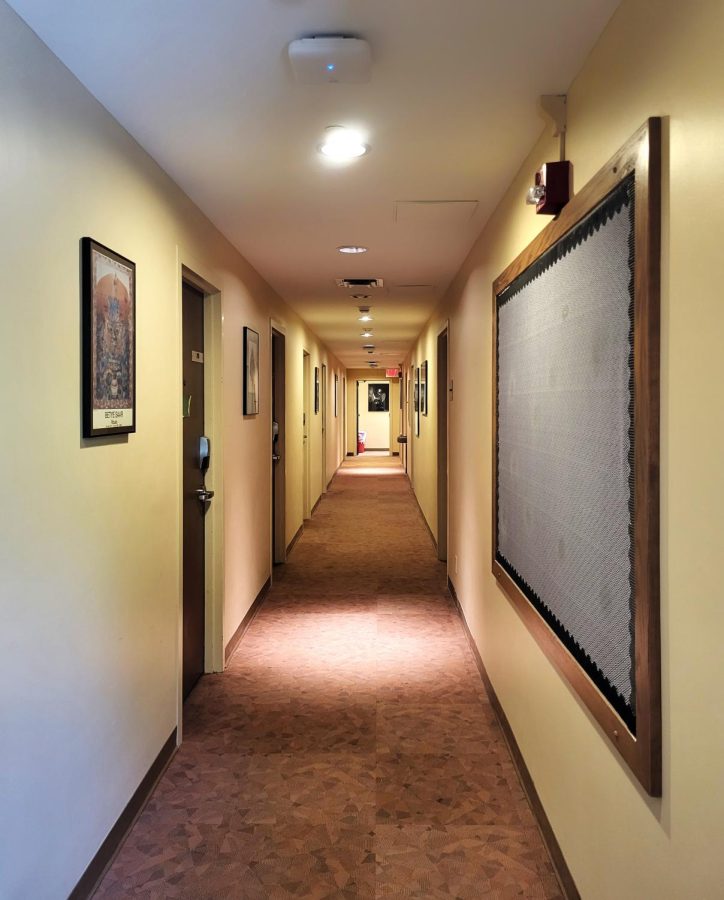Students Living in Common Rooms Due to ResEd Housing Shortage
Photo by Khadijah Halliday, Photo Editor
Students express dissatisfaction with their current housing situations.
The Admissions Office has seen a steady increase in the number of applications to the College over the past few years. According to Manuel Carballo, vice president and dean of admissions and financial aid, the College received 10,340 applications for the 2022–23 academic year, up from 9,243 in 2021, 7,919 in 2020, and 6,265 in 2019.
As a result, this year’s enrolled class size shows an increase as well with 893 new students, up from last year’s 883. The two larger-than-average classes have consequently placed a strain on Residential Education. At the start of last year, students who did not receive housing assignments were placed temporarily into rooms at The Hotel at Oberlin. However, this is no longer possible because The Hotel has returned to full guest operations.
Residential Education has developed solutions to accommodate the volume of new students this year. Several students, such as College third-year Martina Taylor, were placed in modified living spaces to address the housing shortage. Taylor is living in a double in Baldwin Cottage, the Women and Trans* Collective, that ResEd converted into a triple — with one of their roommates sleeping in a walk-in closet. Though ResEd had not originally positioned the third bed within the closet space, Taylor and their roommates arrived at this configuration to prevent crowding.
“So basically, in the spring I got my housing information from ResEd and they said that I was gonna be living in a double in Baldwin,” Taylor said. “And then when they sent out the info again, near the fall, right before classes started, they said that I had a different roommate, but it turned out that they turned the double into a triple without telling us. And it was very unclear. So we ended up just having two people in the front room and then one person living in the walk-in closet.”
For Taylor, lack of communication from ResEd posed a key issue. When they found out they would have a third roommate late this past summer, Taylor placed calls, left voicemails, and sent emails to ResEd.
“I really wish ResEd was more transparent about everything because I can see how, to them, turning a double into a triple wouldn’t be a big deal, but I spent the later half of my summer being really confused and worried about what situation I was going into,” Taylor said. “And I feel like where you sleep and live with a stranger is kind of a big deal.”
Similar occurrences have taken place not only throughout Baldwin but in other dorms, as well. Several students across campus are living in communal spaces, such as lounges, that ResEd has converted into dorm rooms. This leaves dorm buildings with fewer lounge spaces for community programming and connection.
College first-year Maia Hochheiser lives in a former lounge in Burton Hall that now acts as a double. The room looks different from many of the other dorms on her floor — it is carpeted and both the windows and the window panel within the door have been frosted over in an attempt to block out extraneous light. Hochheiser added that Burton’s hallway lights never fully turn off and are motion activated, resulting in increased light filtering through the door windows whenever someone walks by.
“I guess technically it’s a temporary room assignment,” Hochheiser said. “Which means technically [ResEd] could be like, ‘Hey, you’re moving.’ Like anytime. Which would be really unfortunate.” Students like Hoccheiser are left uncertain about what the rest of their semester will look like as a result of temporary housing assignments and are questioning if and when they will receive answers from ResEd.







